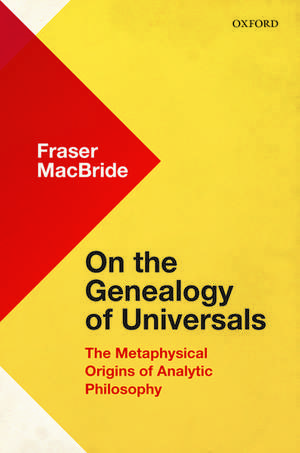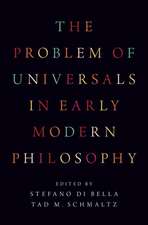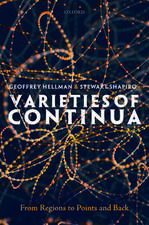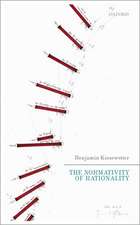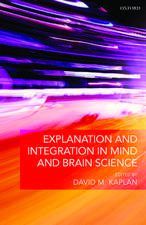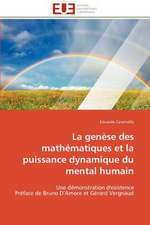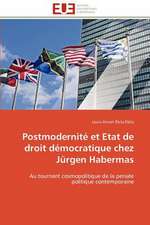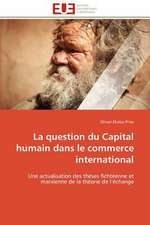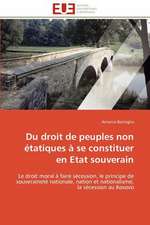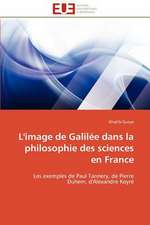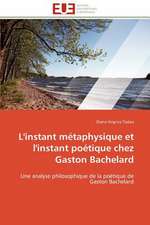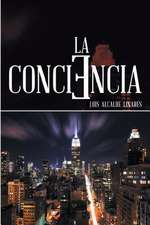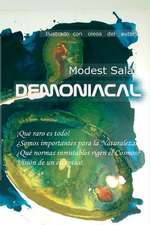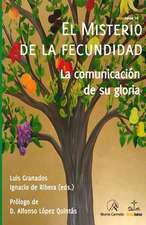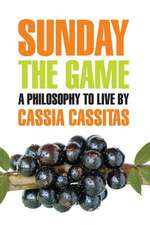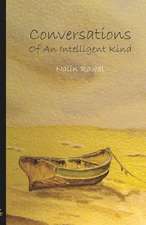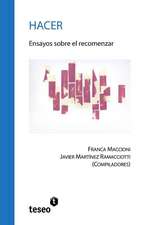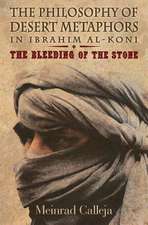On the Genealogy of Universals: The Metaphysical Origins of Analytic Philosophy
Autor Fraser MacBrideen Limba Engleză Hardback – 15 mar 2018
Preț: 523.17 lei
Preț vechi: 647.03 lei
-19% Nou
Puncte Express: 785
Preț estimativ în valută:
100.13€ • 104.14$ • 83.91£
100.13€ • 104.14$ • 83.91£
Carte tipărită la comandă
Livrare economică 03-08 martie
Preluare comenzi: 021 569.72.76
Specificații
ISBN-13: 9780198811251
ISBN-10: 019881125X
Pagini: 272
Dimensiuni: 164 x 242 x 24 mm
Greutate: 0.56 kg
Editura: OUP OXFORD
Colecția OUP Oxford
Locul publicării:Oxford, United Kingdom
ISBN-10: 019881125X
Pagini: 272
Dimensiuni: 164 x 242 x 24 mm
Greutate: 0.56 kg
Editura: OUP OXFORD
Colecția OUP Oxford
Locul publicării:Oxford, United Kingdom
Recenzii
Contemporary metaphysicians, whether they are aware of it or not, whether they credit their predecessors or not, frequently end up importing very problematic assumptions from historical debates previously enacted. Unless such assumptions are properly explored and questioned, we cannot feel confident that we are making any genuine progress in contemporary metaphysics rather than just repeating the same mistakes of our philosophical forebears. It is within this context that I find the work of historically minded philosophers to be particularly important. One such philosopher is Fraser MacBride.... an untold and surprising history of how the categories of particulars and universals have been understood in the history of early analytic philosophy
MacBride succeeds admirably in his main goal
In every one of MacBride's chapters there are striking and challenging contentions; each offers an interpretive perspective that is at least thought-provoking and often illuminating. There is none that does not repay close study... His book is serious and informed. Any student of the period will find that there is a great deal to learn ... from the attempt to view the landscape as he does.
When MacBride gets down to the coal-face of textual analysis, some of the most recondite texts of the period, from Moore's early papers-often cited but rarely understood-to the work of Stout and Whitehead, yield to his power of interpretation. They reveal breath-taking philosophical vistas... MacBride's chapter on Ramsey, like the book itself, is a tour de force.
Fraser MacBride's On the Genealogy of Universals is a tour de force through the early years of analytic philosophy with a focus on metaphysics. It is a thorough book, a fascinating book, and a book that is bound to change minds'
In the preface to this excellent book, Fraser MacBride says he decided to write it because he had "become convinced that there is far more to ?nd out and far more to learn from the history of early analytic philosophy" (vii). He is right; the history of early analytic philosophy holds insights for us today, and most of them lie outside of what MacBride calls our "cartoon histories." In punchy prose, he mines gems from what one of his heroes, Frank Ramsey, called "that great muddle the theory of universals."
MacBride succeeds admirably in his main goal
In every one of MacBride's chapters there are striking and challenging contentions; each offers an interpretive perspective that is at least thought-provoking and often illuminating. There is none that does not repay close study... His book is serious and informed. Any student of the period will find that there is a great deal to learn ... from the attempt to view the landscape as he does.
When MacBride gets down to the coal-face of textual analysis, some of the most recondite texts of the period, from Moore's early papers-often cited but rarely understood-to the work of Stout and Whitehead, yield to his power of interpretation. They reveal breath-taking philosophical vistas... MacBride's chapter on Ramsey, like the book itself, is a tour de force.
Fraser MacBride's On the Genealogy of Universals is a tour de force through the early years of analytic philosophy with a focus on metaphysics. It is a thorough book, a fascinating book, and a book that is bound to change minds'
In the preface to this excellent book, Fraser MacBride says he decided to write it because he had "become convinced that there is far more to ?nd out and far more to learn from the history of early analytic philosophy" (vii). He is right; the history of early analytic philosophy holds insights for us today, and most of them lie outside of what MacBride calls our "cartoon histories." In punchy prose, he mines gems from what one of his heroes, Frank Ramsey, called "that great muddle the theory of universals."
Notă biografică
Fraser MacBride is Professor of Logic and Metaphysics at the University of Manchester and Editor of the Monist. He was previously Chair of Logic and Rhetoric at the University of Glasgow and a Reader in Philosophy at the University of Cambridge. He has also been the Visiting Bertrand Russell Professor at McMaster University where the Bertrand Russell Archive is held. He has published widely on metaphysics, the philosophy of mathematics and the philosophy of language as well as the history of analytic philosophy with an especial interest in the existence and nature of relations.
